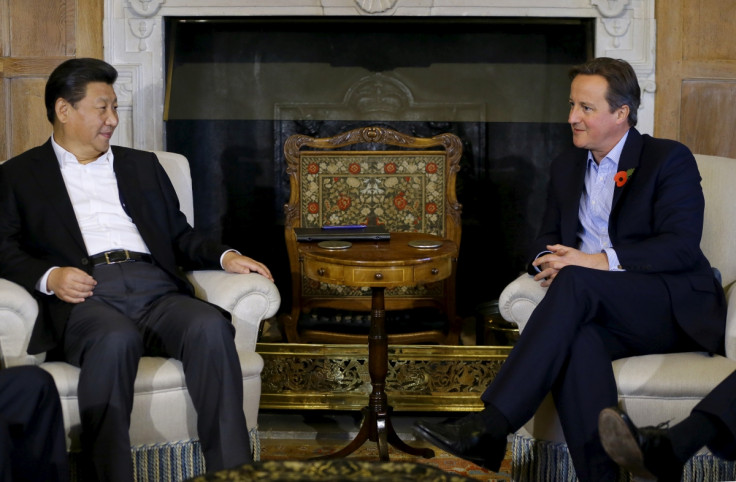Tata Steel: David Cameron raises concerns with Xi Jinping as China hikes British tariff to 46%

David Cameron has raised concerns about China's steel dumping with President Xi Jinping as a defiant China slapped a 46% punitive tariff on both British- and EU-produced steel. The news that Cameron challenged Xi comes as Business Secretary Sajid Javid received a frosty reception from Port Talbot steel workers – who are set to be the most affected by any possible closure of Tata Steel's UK operation.
During a dinner at the White House on Thursday, Cameron told Xi that the countries must work together to tackle over-capacity of steel, his spokesperson said. Both the government and the unions blame the availability of cheap Chinese imports for pushing Tata's UK business to the brink of collapse – risking 15,000 jobs.
The government's handling of the crisis has called into question the UK's relationship with China, as they repeatedly snub suggestions of nationalisation of the UK's steel industry. China stoked the fire further yesterday (1 April) by slapping punitive tariffs of 46%, from 14.4%, on hi-tech steel made in Britain and the European Union and other nations saying that China had suffered "substantial damage" from trade abuses.
Cameron hopes Xi will put the steel issue on the agenda for a G20 summit China will host in September, but that could be too late as Labour accuses Cameron and cohorts of being too soft on China. Yesterday Javid arrived in Port Talbot, cutting short a trip to Australia, to tell steel workers that the government "was on their side" as hundreds held banners with slogans such as "save our steel".
Honoured to meet some of the hardest working men and women in Britain. We will do all we can to help #PortTalbot pic.twitter.com/yEdrLpPjZ8
— Sajid Javid (@sajidjavid) 1 April 2016
Javid has been under fire for being in Australia with his daughter at the time that Tata announced its plans to sell the Port Talbot buisness and its other UK assets, as local MP Stephen Kinnock headed to Mumbai. Labour leader Jeremy Corbyn had earlier urged Cameron to recall Parliament in response to the potentially devastating impact of the announcement.
According to multiple sources Britain has blocked efforts at EU level to impose similarly high emergency tariffs on Chinese steel – similar to US imposed tariffs of 266%. Cameron hopes that Tata can sell the business but said there was "no guarantee of success" while repeatedly saying nationalisation is not the answer.
In the past 13 years Chinese exports have sky-rocketed. In 2003 the country exported 7.2m tonnes, rising to 107m tonnes last year. In comparison, in 2013 the UK produced 13m tonnes of steel while China produced 779m tonnes.
© Copyright IBTimes 2024. All rights reserved.






